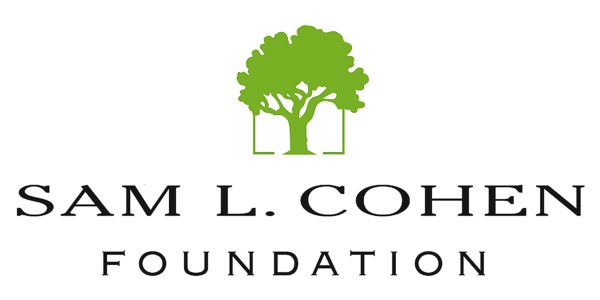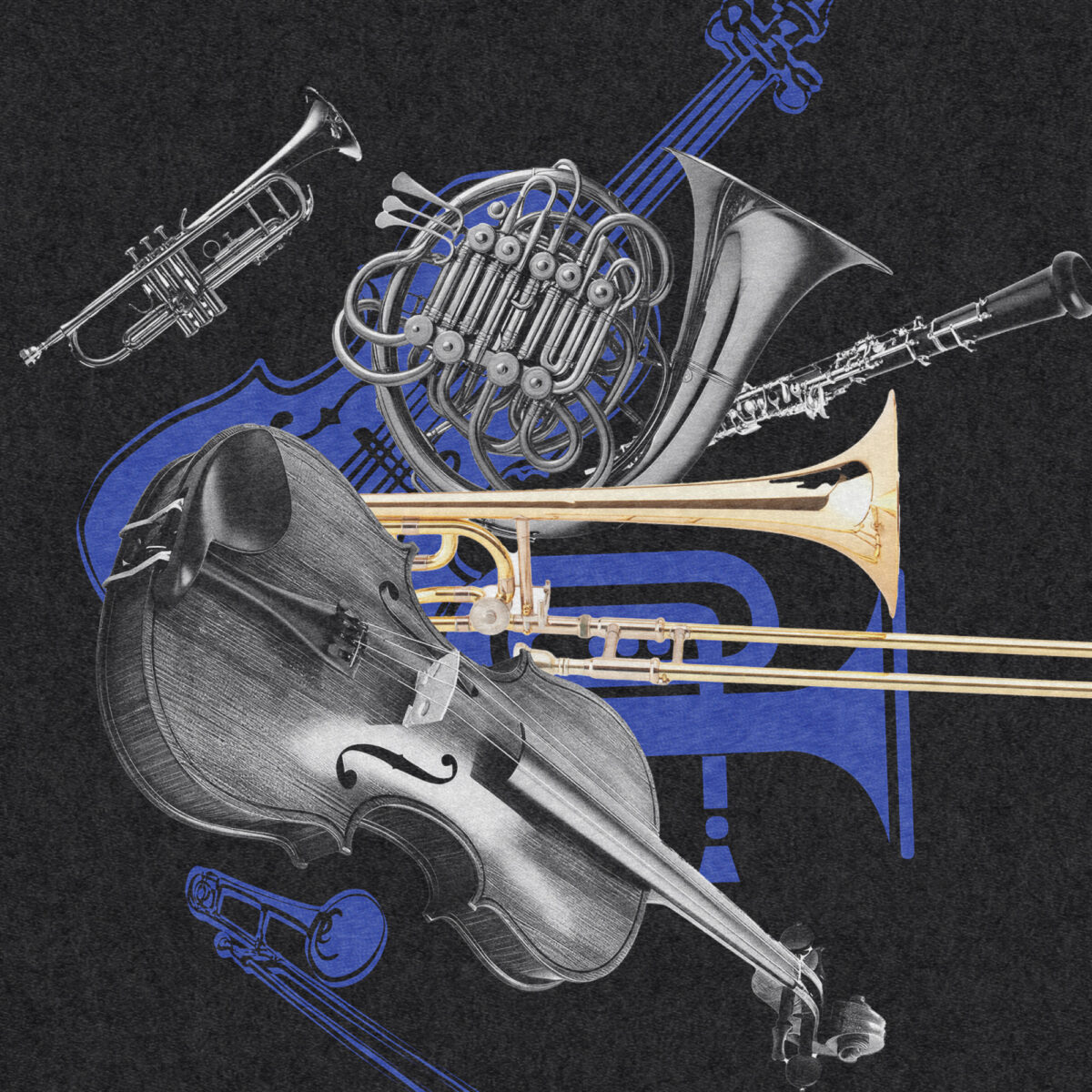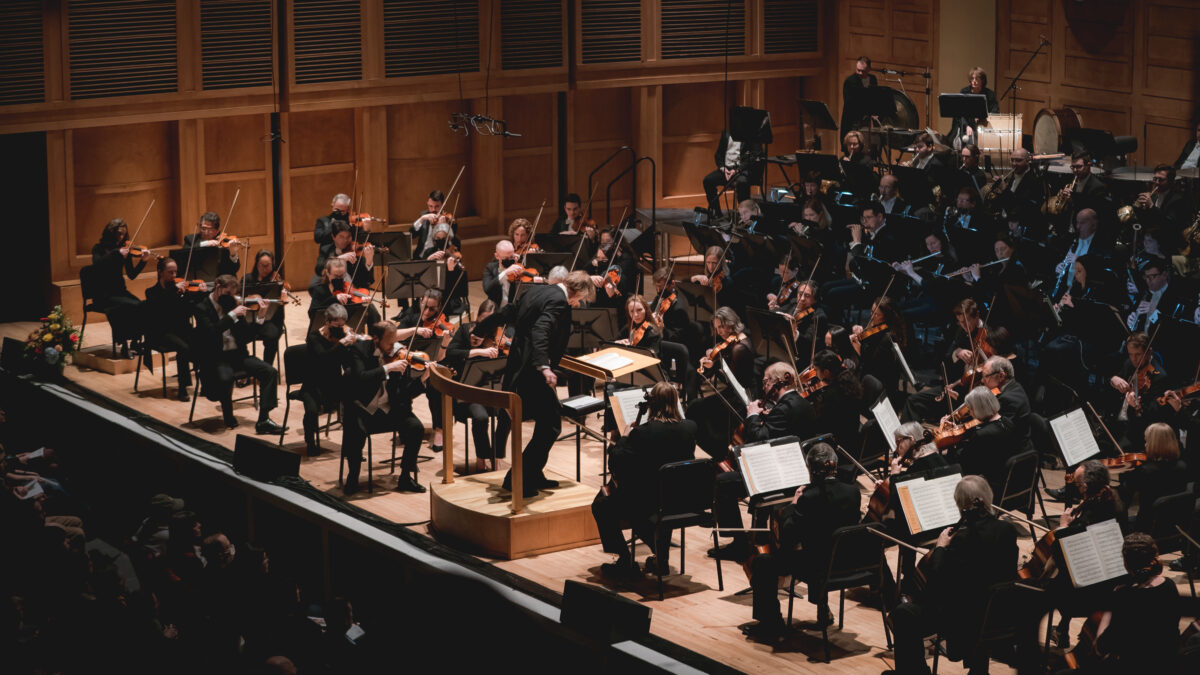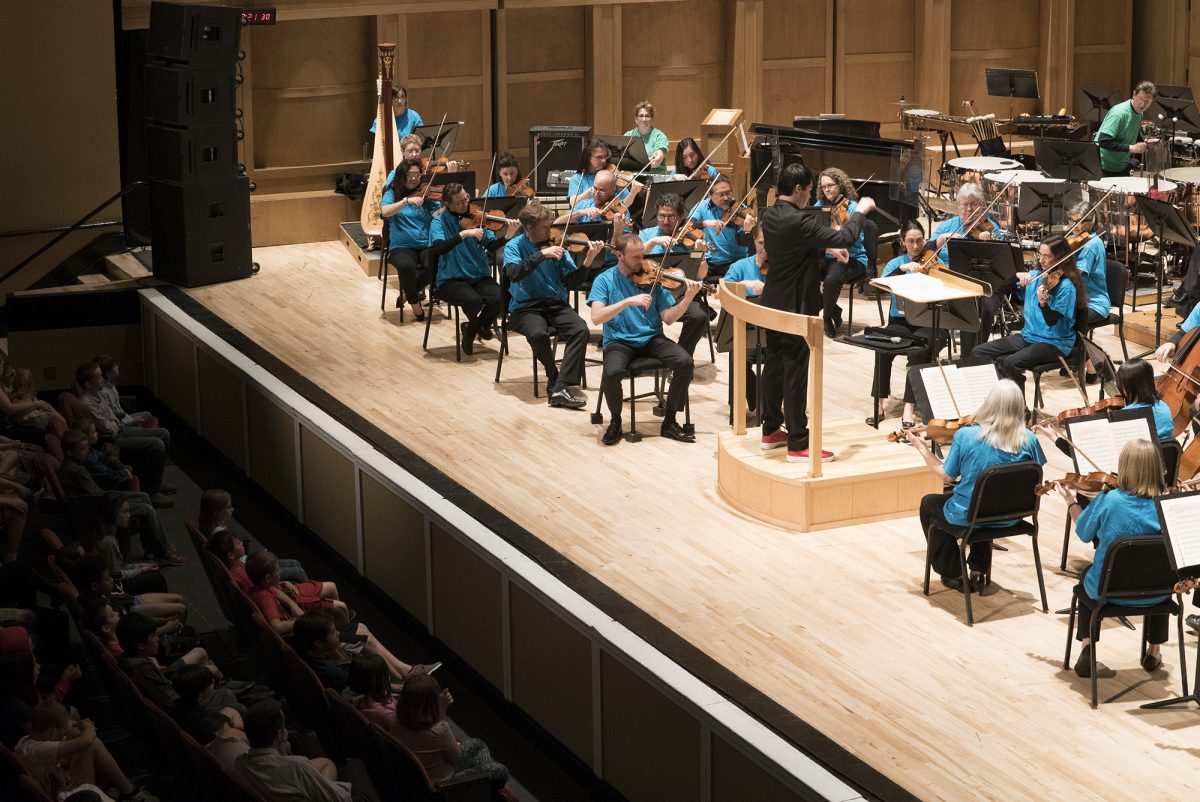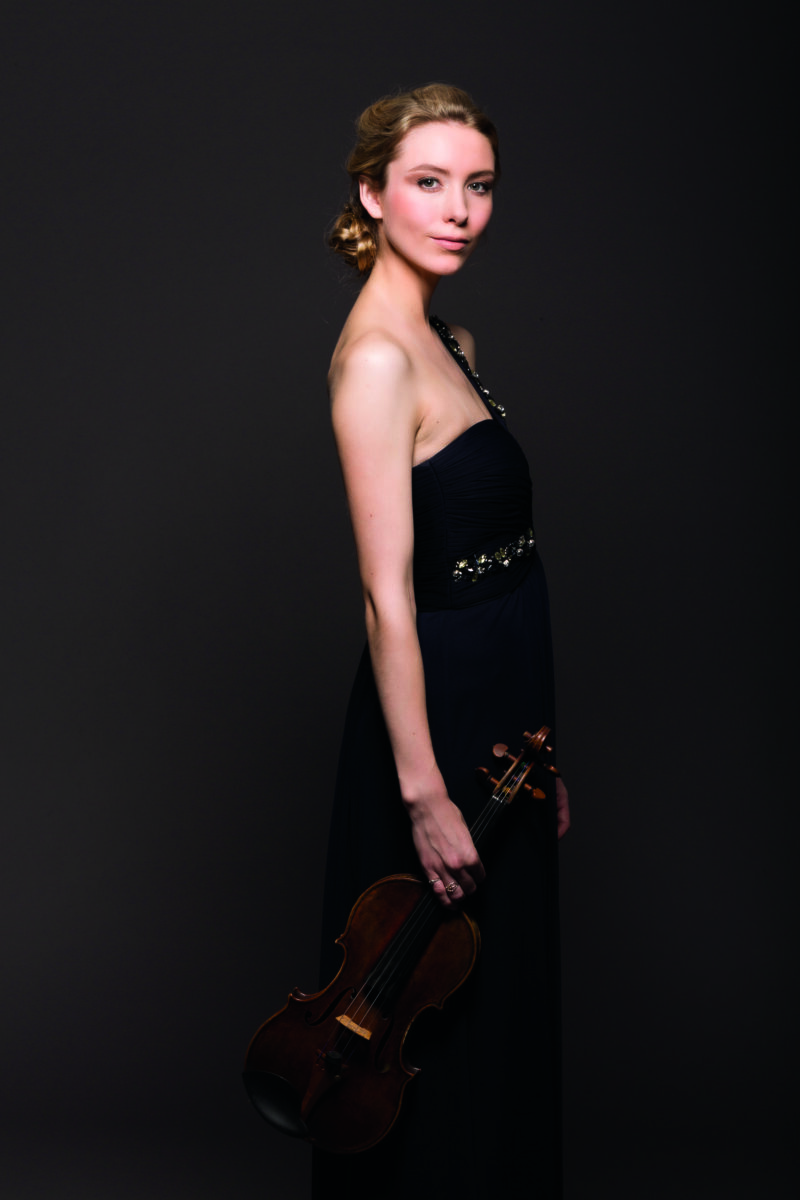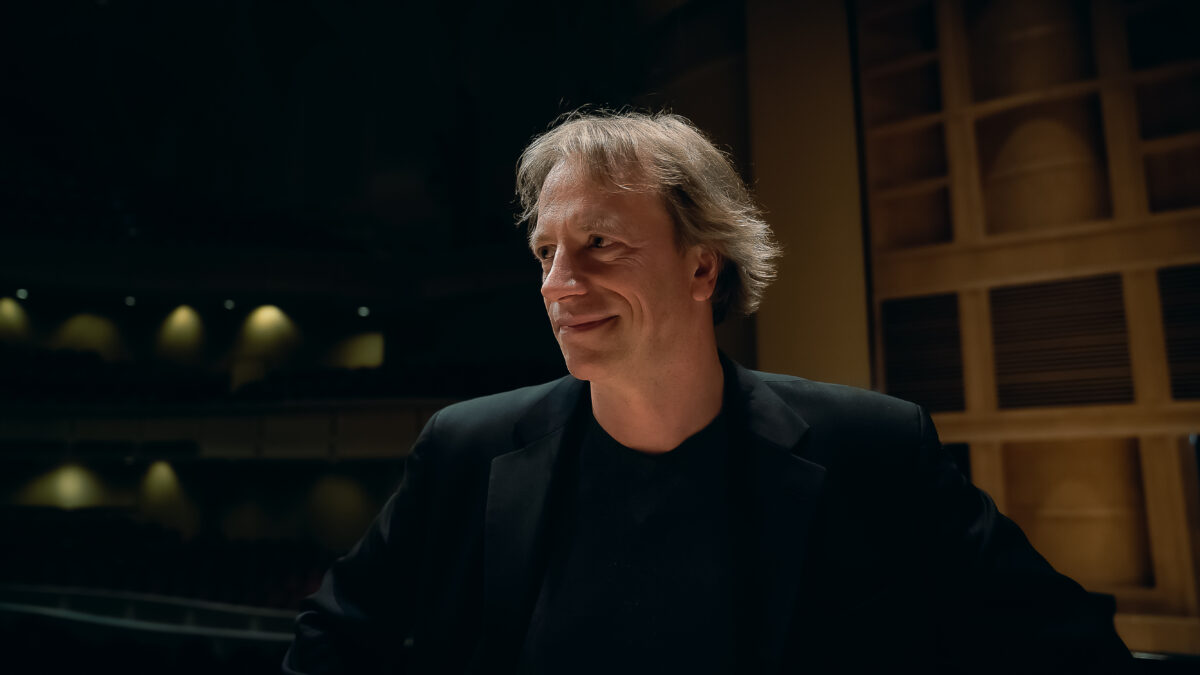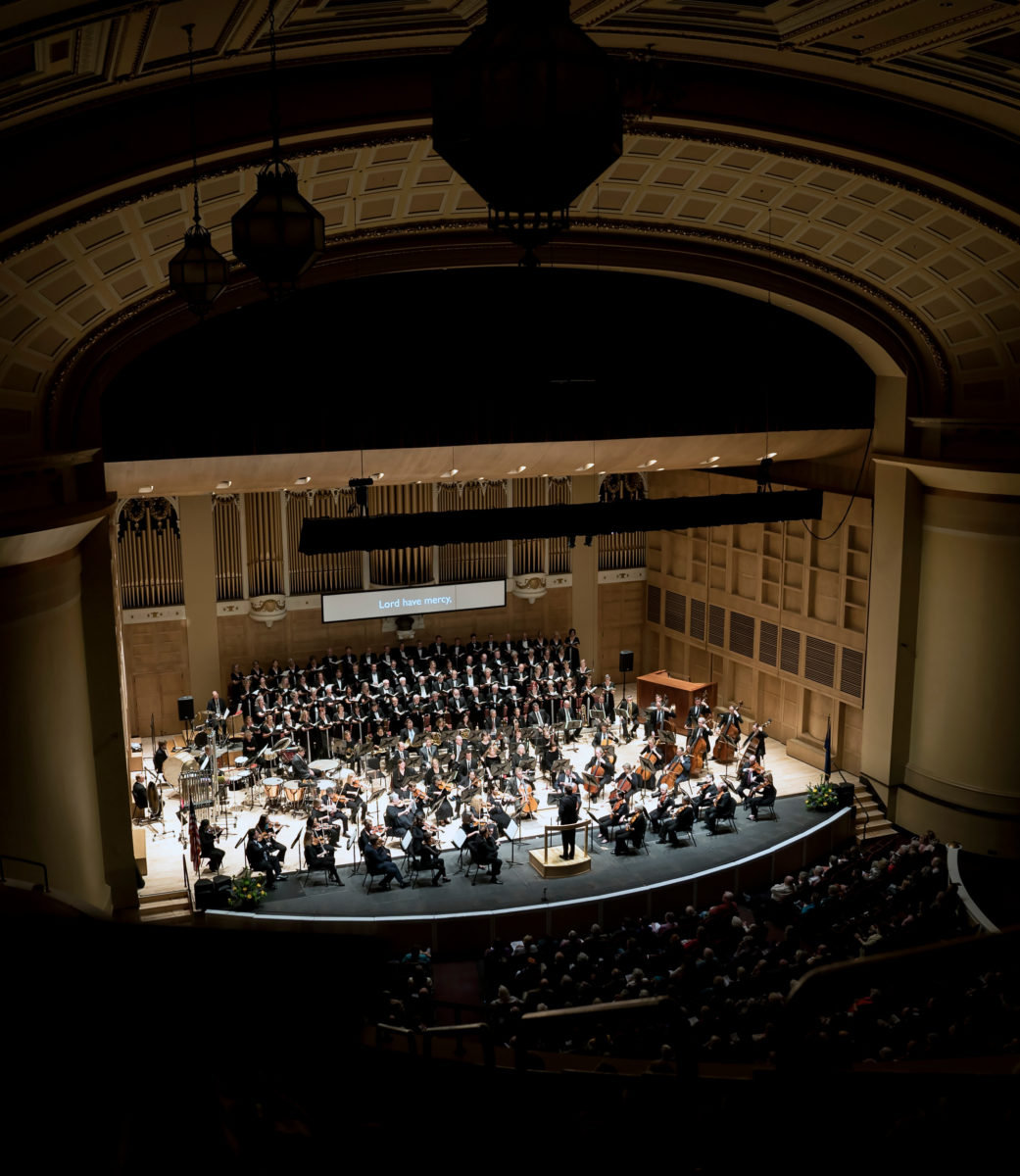Violins of Hope Maine
Remembering the Holocaust, the PSO seeks to build connections in our community, strengthen long-treasured relationships, and create meaningful ways for people to reflect and to unite through music.
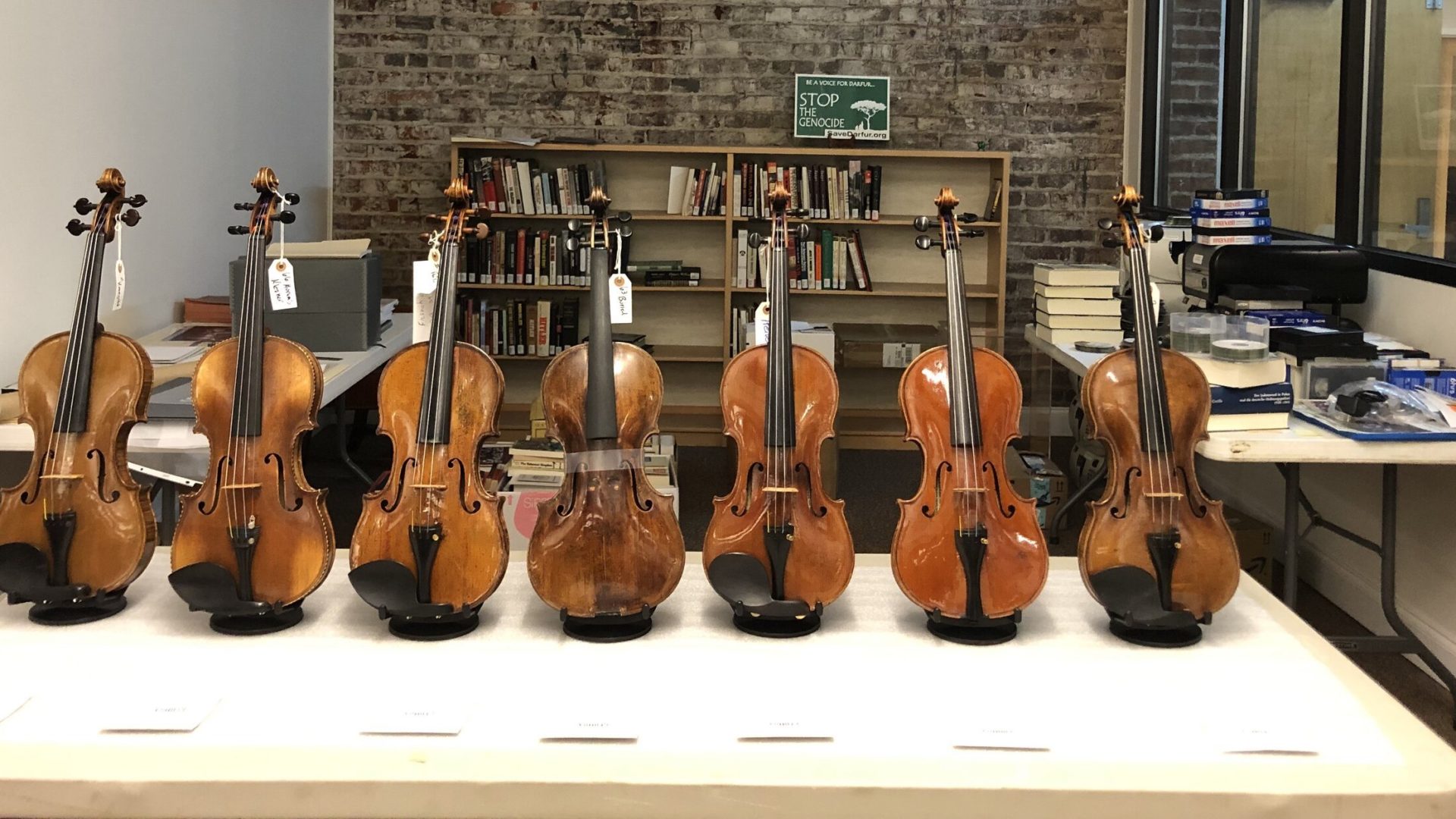
Month-long Residency with Violins of Hope
The Portland Symphony Orchestra will hold a special month-long residency this October with Violins of Hope. The residency is in commemoration of the Holocaust, specifically of the 80th anniversary of the resistance of the Terezín prisoners, which took place in the form of continuing Jewish tradition at the concentration camp, and included 16 performances of Verdi’s Requiem Mass.
Violins of Hope Maine will culminate with two PSO performances of Verdi’s Requiem, under the baton of PSO Music Director Eckart Preu. PSO string players will perform on Violins of Hope instruments, allowing the voices of these instruments to be heard. The concerts will open with two works that highlight instruments from the collection, Max Bruch’s Kol Nidrei and John Williams’ Theme from Schindler’s List. The PSO will be joined by four vocal soloists and ChoralArt Masterworks for Verdi’s Requiem. Grammy-winning PARMA will record the performances, and it will be available digitally for 30 days, from November 2 – December 2, 2022.
PSO Music Director Eckart Preu said, “Throughout history music has empowered people, has given them comfort, support, and strength. The Violins of Hope instruments tell extraordinary stories of courage, resilience, and humanity. These violins represent living history, the extraordinary power of music, and are messengers of peace, harmony, and the human spirit.”
Violins of Hope Maine will include education and community events in collaboration with community partners ChoralArt, Holocaust & Human Rights Center, Maine Jewish Museum, Maine Jewish Film Festival, and Jewish Community Alliance of Southern Maine. This month-long project is sponsored by the National Endowment for the Arts, the Sam L. Cohen Foundation, The Hudson Foundation, and generous community members.
In order to bring this incredible project to Portland, your Portland Symphony Orchestra will need to raise at least $50,000.
Verdi Requiem at Terezín
A Piece of Hope and Protest
Terezín was a Nazi camp that included Jewish intellectual, political, and musical elite. Conductor Rafael Schächter, a prisoner, taught a chorus of prisoners Verdi’s Requiem from one smuggled score. During 1942-43, the chorus sang 16 performances of the Requiem. For the prisoners, these performances demonstrated their determination to hold onto their humanity while acting in defiance to the Nazis. Conductor Rafael Schächter told the choir, “We will sing to the Nazis what we cannot say to them.”
History of Violins of Hope
Violins of Hope is a collection of restored instruments played by Jewish musicians during the Holocaust. These instruments, 60 in total, have survived concentration camps, pogroms, and many long journeys to tell remarkable stories of injustice, suffering, resilience, and survival. Owned and restored by father-and-son violin-makers Amnon and Avshi Weinstein, the collection travels to concert halls around the world. Avshi Weinstein will travel to Maine to participate in Violins of Hope Maine community and education events, including a string quartet tour of southern and central Maine visiting schools, museums, and synagogues.
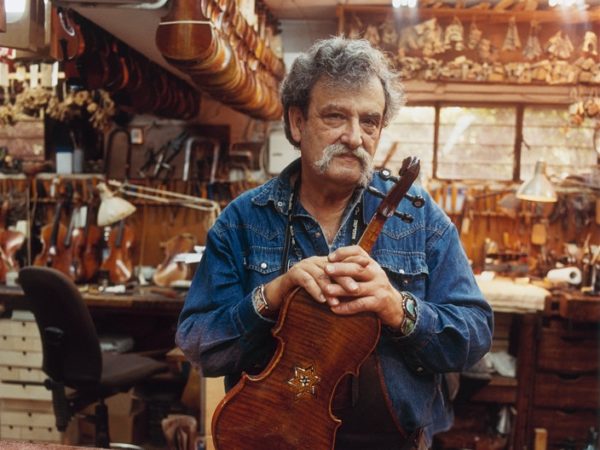 Amnon Weinstein is an Israeli master violinmaker and founder of Violins of Hope. He has devoted the last 20 years to locating and restoring the violins of the Holocaust as a tribute to those who were lost, including 400 of his own relatives. Born in 1939 in Palestine, one year after his parents immigrated, Amnon followed in his father’s footsteps, becoming one of the finest luthiers in the world. He studied with the world’s greatest luthiers in Italy and Paris, and he has won many prestigious international awards for his craft.
Amnon Weinstein is an Israeli master violinmaker and founder of Violins of Hope. He has devoted the last 20 years to locating and restoring the violins of the Holocaust as a tribute to those who were lost, including 400 of his own relatives. Born in 1939 in Palestine, one year after his parents immigrated, Amnon followed in his father’s footsteps, becoming one of the finest luthiers in the world. He studied with the world’s greatest luthiers in Italy and Paris, and he has won many prestigious international awards for his craft.
In the late 1980’s, a man who played the violin in Auschwitz asked Ammon if he would restore his violin. This man had not played the instrument since leaving the camp and wanted to get it restored for his grandson. Weinstein lovingly restored that first violin. From that day on, he had a new mission in life. He tracked down and restored scores of other violins played by Jews in ghettos, forest hideouts, and concentration camp orchestras. His son Avshi joined him in this work in 1998.
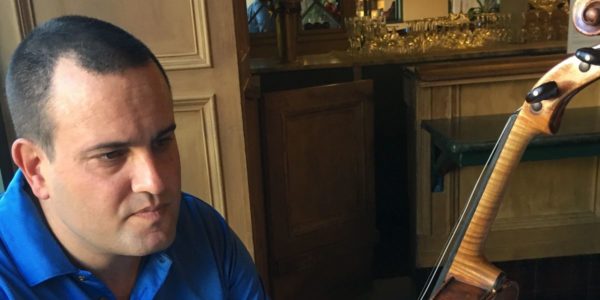 Avshalom (Avshi) Weinstein, a third-generation Israeli violinmaker, was trained by his father, Amnon, the founder of Violins of Hope. Avshi will travel to Maine to participate in the Violins of Hope Maine project. Avshi is a violinmaker and restorer of violins, violas and cellos. He is trained in the tradition of the Italian Cremonese School of violinmakers and the French school of restoration. Since Violins of Hope became a major force in Holocaust education, Avshi travels the world to share the stories of these instruments. Together with local educators and musicians, he visits schools where youngsters are often receiving their first introduction to the Holocaust’s history. He gives young people the opportunity to see and hold an instrument that has survived. Violins of Hope helps young people remember all those who were lost, and the victory of the human spirit over evil and hatred.
Avshalom (Avshi) Weinstein, a third-generation Israeli violinmaker, was trained by his father, Amnon, the founder of Violins of Hope. Avshi will travel to Maine to participate in the Violins of Hope Maine project. Avshi is a violinmaker and restorer of violins, violas and cellos. He is trained in the tradition of the Italian Cremonese School of violinmakers and the French school of restoration. Since Violins of Hope became a major force in Holocaust education, Avshi travels the world to share the stories of these instruments. Together with local educators and musicians, he visits schools where youngsters are often receiving their first introduction to the Holocaust’s history. He gives young people the opportunity to see and hold an instrument that has survived. Violins of Hope helps young people remember all those who were lost, and the victory of the human spirit over evil and hatred.
Violin Stories
The Bernheim-Barnea Violin
Berta and Alfred Bernheim were the owners of a big shopping center in Bavaria. The Nazis took over the shop and marched Berta and Alfred naked in the main street. Their son, Ziegbert left Germany and never stopped playing his violin.
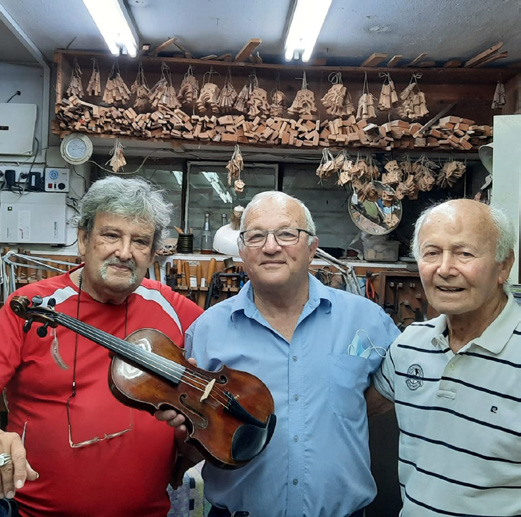
The Violin With A Dry Flower
This belonged to a young anonymous Jewish violinist who rented a room with a Brussels family. When he ran out of money for rent he left his violin as a deposit and never came back for it. We can only imagine what happened to him during the war. The woman who donated the violin left a flower bouquet with it, and apparently part of it got into the violin itself.
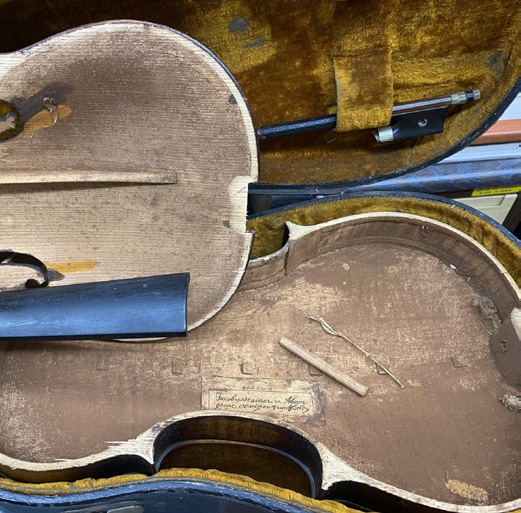
Re-emerging from Storage
After over a year in storage due to COVID, the Violins of Hope are now getting ready to play again.
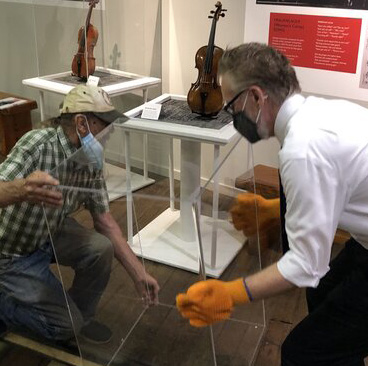
The Bielski Violin
This is a violin played by a klezmer musician. Music was one of the few art forms encouraged by Jewish tradition, and it was quite common for young children to play the violin. The restoration work on this violin is dedicated to the Bielski partisans who fought and saved 1,230 Jews during the war.
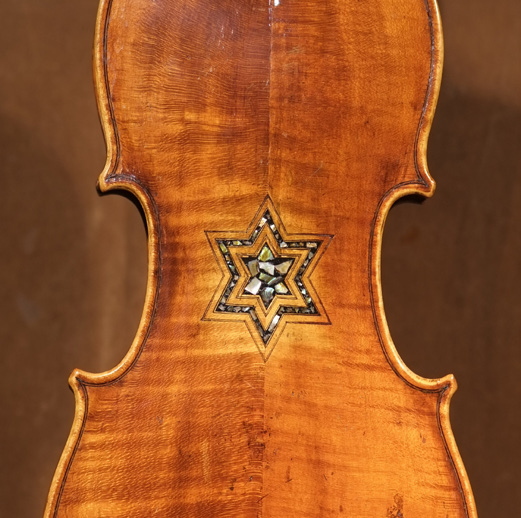
A Month of Events to Remember and Reflect
Sorry, no upcoming events at this time.
Want To Learn More
We would like to thank the following sponsors

